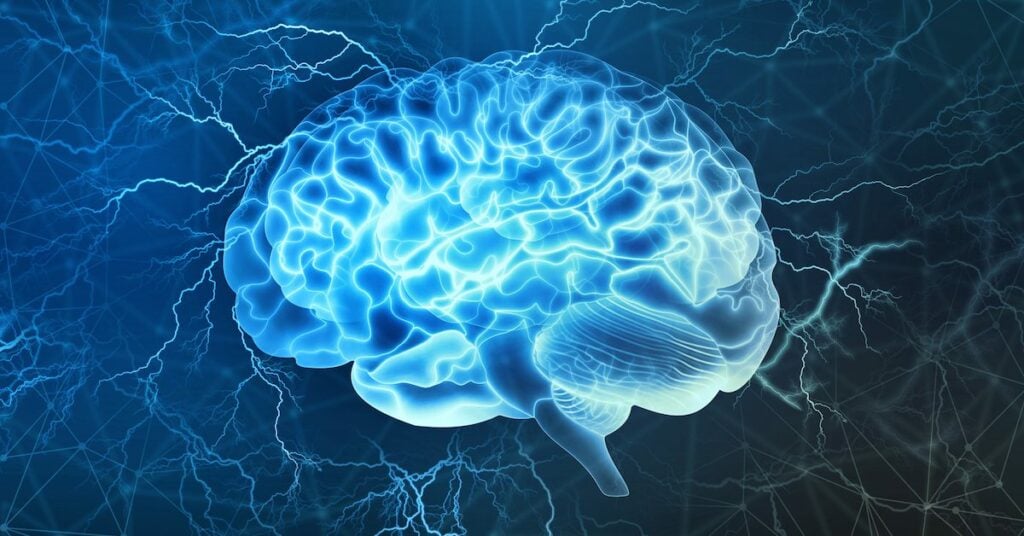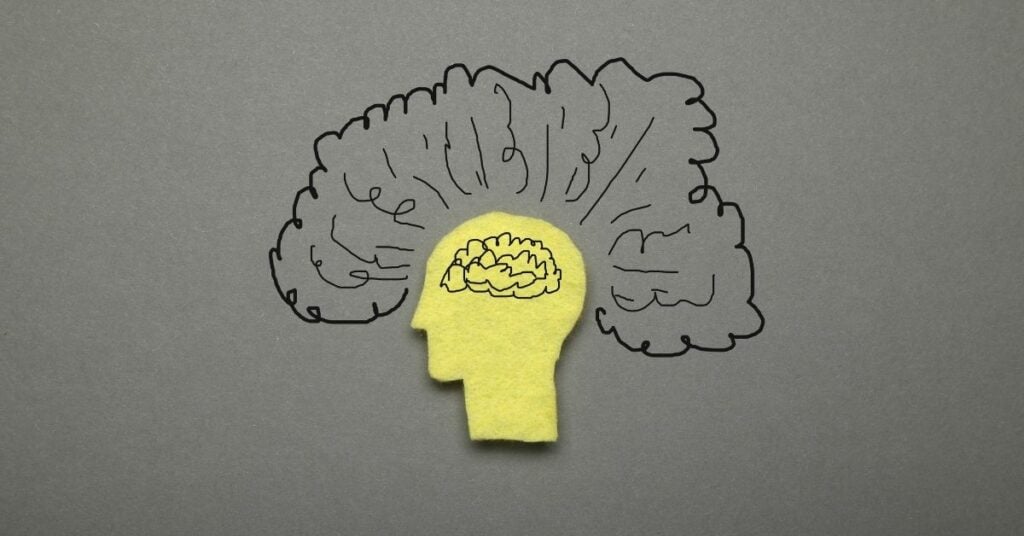10 natural remedies for anxiety
Reviewed by Theresa Fry, LPC, NCC, CTP-CE

Anxiety is a common mental health disorder, affecting nearly 30% of adults1 at some point in their lifetime. Some anxiety is a normal part of life, particularly during times of stress. However, persistent or chronic anxiety can make daily life more difficult and less enjoyable.
There are many treatment options when it comes to anxiety. Some might benefit from medication for severe anxiety symptoms. Others may decide to try a more natural solution to avoid any potential side effects associated with taking medication.
Keep in mind that natural remedies work best when paired alongside more traditional approaches to treatment, such as therapy. Natural remedies cannot cure mental illness; they can only help alleviate certain symptoms.
1. Exercise for Anxiety
Exercise is an important part of physical health and has a variety of positive effects on mental health as well. Getting active can be a healthy way to clear one’s head and release endorphins, the body’s feel-good hormones.
Exercise has been shown to improve anxiety symptoms for some, but others may find their symptoms worsening. For example, those who struggle with eating disorders might feel anxious about working out, and those who are prone to panic attacks might have their symptoms worsened by an increased heart rate during exercise.
2. Herbal Supplements for Anxiety
Certain herbs can help promote relaxation and reduce anxiety symptoms. These may come in the form of capsules, oils, or teas to provide short-term relief. Herbs that are known to reduce anxiety include:
- Lavender
- Kava
- Chamomile
- Valerian root
Speak with your doctor before adding any herbal supplements to your healthcare regimen, as certain supplements may have side effects or interfere with other medications. Remember, most herbal supplements are not tested or approved by the FDA.
3. CBD Oil for Anxiety
Cannabidiol (CBD) is derived from hemp and has been growing in popularity for its potential healing properties. CBD oil is a popular form of CBD and is a safe and effective way to receive the benefits.
While more research needs to be conducted on CBD, animal studies suggest2 that CBD can help to reduce stress. In the meantime, many people use CBD oil to help manage mental health concerns such as:
- Social anxiety
- Generalized anxiety disorder
- Posttraumatic stress disorder (PTSD)
- Obsessive-compulsive disorder (OCD)
- Panic disorders
Legally-purchased CBD should be safe, free of addictive properties, and free of any unwanted additives, such as illegal narcotics. To ensure safety, always purchase your CBD oil from a licensed source that is third-party tested for safety and purity.
4. Aromatherapy for Anxiety
Aromatherapy involves the use of naturally-derived essential oils to produce a calming effect. Essential oils are commonly used in a diffuser. Once diluted, they can be applied directly to the skin. Scents that are commonly used to reduce anxiety include:
- Lavender
- Bergamot
- Chamomile
- Jasmine
- Rose
Typically, aromatherapy is a safer alternative to herbal supplements. Instead of directly ingesting lavender, for example, a person can instead smell some lavender-scented oil. Sometimes, simply pausing to engage one’s senses can relieve symptoms of anxiety.
5. Meditation for Anxiety
Meditation is a mindfulness practice that involves focusing the mind and bringing awareness to the present moment. This can help someone discover new perspectives on life, observe their thoughts more carefully, and set healthy intentions. Many people use meditation to reduce their symptoms of anxiety and achieve a calmer state.
6. Animal-Assisted Therapy
Animal-assisted therapy (AAT) involves the use of animals to help with certain mental health disorders. This can include a therapy animal, emotional support animal, or service animal. AAT can help someone lower their anxiety and increase their sense of safety.
7. Giving Up Alcohol & Smoking
Although many people use alcohol and tobacco to try to manage stress, these substances may worsen anxiety symptoms in the long run. Smoking or drinking might provide a temporary fix, but the craving for more often comes with irritability and anxiety. Cutting back on smoking and drinking alcohol helps stop this unhealthy cycle.
8. Limiting Caffeine
Consuming too much caffeine can cause physical symptoms that may mirror or exacerbate symptoms of anxiety. High levels of caffeine are linked to heart palpitations, jitters, insomnia, and gastrointestinal issues.
For people who already struggle with anxiety, too much caffeine may worsen their symptoms, even potentially causing a panic attack. Those who have an anxiety or panic disorder should consider limiting or getting rid of caffeine from their diet.
9. A Healthy Diet
A nutritious diet can help alleviate symptoms of anxiety. Nutritional intervention involves giving the body the nourishment it needs for better physical and mental health. This includes getting plenty of vegetables, fruits, and whole grains. Chemicals in processed foods, artificial sweeteners and coloring, and preservatives may have a negative effect on the body, so limiting these ingredients can help promote better wellness.
10. Breathing Exercises
One symptom of anxiety is rapid and shallow breathing. Different breathing exercises have been shown to help improve the symptoms of anxiety. Some techniques to try include:
- Belly breathing: Placing one hand on the belly and the other on the chest, take a deep breath in through the nose, and let your belly push your hand out. Your chest should remain still. Breath out through your mouth and repeat for up to 10 breaths.
- Alternate nostril breathing: First, close your right nostril with your thumb or finger. Breathe in through your left nostril. Then, before exhaling, open your right nostril and close your left nostril. Now, breathe out through your right nostril. Reverse the process by breathing in through your right nostril while your left is closed, and then exhaling through your left while your right is closed. Repeat for up to five minutes.
- 4-7-8 breathing: Breathe in through the nose for four counts and hold it for seven counts. Exhale through the mouth for eight counts, repeating for several cycles.
- Box breathing: Breathe in through the nose for four counts. Hold in the air for four counts, and then slowly exhale for four more counts. Repeat this process several times.
Mindful breathing: Focus on the natural rhythm of your breathing and how it feels to inhale and exhale. This can be done during times of stress to take the mind off of anxious thoughts.
When to Get Help for Your Anxiety
Natural remedies are great solutions that anyone can try at home to improve anxiety. However, for some, these remedies aren’t enough when it comes to severe or persistent anxiety.
Symptoms of anxiety that are difficult to control on your own should be discussed with a professional therapist. Common therapies recommended for anxiety include:
- Cognitive behavioral therapy (CBT)
- Exposure therapy
- Acceptance and commitment therapy (ACT)
- Mindfulness-based cognitive therapy (MBCT)
Find a therapist near you today to begin treatment for anxiety.
About the author
The editorial team at therapist.com works with the world’s leading clinical experts to bring you accessible, insightful information about mental health topics and trends.
Related articles

Mindfulness and mental health: Techniques and therapies
Mindfulness techniques can be helpful in managing symptoms of anxiety, stress...

ADHD and anxiety: Signs, similarities, and treatment
ADHD and anxiety are two mental health disorders that often occur together...

Transcranial magnetic stimulation (TMS): Uses and risks
Transcranial magnetic stimulation (TMS) therapy is an effective, relatively...

Anxiety attacks: Symptoms, causes, and treatments
Anxiety attacks can have a negative impact on those who experience them, but...